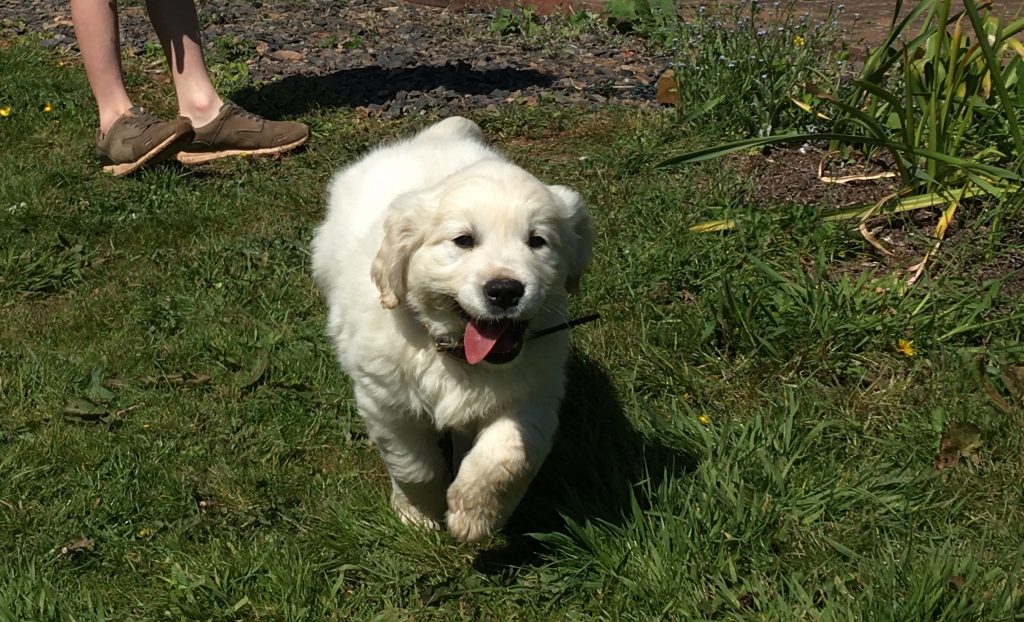Yesterday, we added a new member to our family. A boy called Moose (as a nod to our Canadian-ness)…who is also a dog. It’s been a long time since I’ve seen our kids express pure glee and delight. There were tears of happiness and my heart melted. When we arrived home, we slowed him our garden/yard. We could tell he was nervous and each change of texture – grass, stones, woodchip, patio, etc. was greeted with uncertainty and wonder.
One of the unexpected experiences so far is his desire to chew and eat everything. At the moment, he has a particular fondness for rabbit poo, my toes and thumb, and our potato and corn plants. Our plants have been hit by frost recently, so this new threat is unwelcome. Oh and there was a LOT of whimpering during his first night with us (and I was hoping for a good sleep!).
More experienced dog owners (that’s everyone as Moose is my first dog) probably laugh as they read the above. As this may be common in dogs and expected. For me, I expected him to chew wooden or hard things. And I expected he’d trample some plants and wee on them, but I didn’t expect the chewing.
But this is common in many areas of our lives when we do new things. These unexpected negatives can be minor (like Moose eating the plants) to much greater harms. This is one of the reasons, especially in the health sector, there are strict rules around research involving or impacting humans. There are internal review boards or ethics review boards who independently review your plans and, if approved to proceed, your progress. One of the added values of these boards are the ‘added collective wisdom’ they can provide. They can help identify potential harms or things to watch out for.
Weirdly, these types of boards are rare in the humanitarian sector even though we are introducing new technology and collecting heaps of data about vulnerable people. And yes, we are making mistakes and causing unintentional harms. And yes, many of these ‘harms’ could be avoided if we’d pause for a moment and seek collective wisdom from others.
There always is a balance between ‘just taking action, figuring it out as we go along’ and ‘pausing to seek wise counsel’. Humanitarians tend to be ‘doers’. We tend to work in complex environments on complex problem, where action helps us understand the complexity. However, this doesn’t need to be an excuse for forgoing wise counsel and setting up mechanisms to provide that. In fact, the opposite it likely true.
And just think, if we had a ‘new dog owner board’ they could have told us about the chewing of thumbs, toes, and plants. Here’s a photo of the little dude.


Love Moose!! Our puppy is coming to join us in 10 days!!! I remember talking with you years ago in the Estelle Road days about how siloed the development world is …. colllaboration isn’t a concept they embrace at ngo level – only at ground level ….. all the technology we built to enable data sharing and learning to be shared across the sector has, as far as i know been used internally only….. massive missed opportunity xx
Love Moose!! Our puppy is coming to join us in 10 days!!! I remember talking with you years ago in the Estelle Road days about how siloed the development world is …. colllaboration isn’t a concept they embrace at ngo level – only at ground level ….. all the technology we built to enable data sharing and learning to be shared across the sector has, as far as i know been used internally only….. massive missed opportunity xx